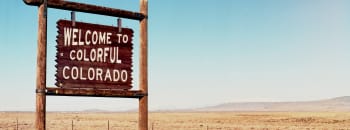South Africa open to productions again
Filming can commence under strict Covid-19 safety protocols
By Chris Evans 29 May 2020

South Africa is up and running again for local projects, with international producers expected to be able to return in July.
Productions have to comply with pretty strict Covid-19 safety protocols, including a crew limit of 50 people; health questionnaires and temperatures to be recorded prior to getting onto set; dedicated medics checking that safety precautions are adhered to, and constant sanitizing. Although intimate performances are still allowed.
The country is set to move to Level 3 lockdown on Monday (1 June), which means most people can return to work. At present, the borders are shut, so international producers can only do remote or live view shooting, but the local industry is hopeful and optimistic that they will open again in July.
The country has proven popular as a shooting location in recent times thanks to its striking locations, cheap costs and even its studios, particularly the impressive Cape Town Studios, which offers five soundstages - the largest of which is 2,100 square meters, a water tanks and backlot sets, including a Robben Island prison.
“You certainly get your bang for your buck in South Africa,” enthused Marios Hamboulides, a UK based AD and producer, to KFTV, who recently worked on the Cinemax TV martial arts series Warrior, set during the Tong Wars in the late 1800s, which filmed in and around the Cape Town Studios. “You can build entire sets at the studios for much cheaper than in the US or Europe. There is also the appeal of no unions. They take the position there that they want the international productions coming in, so they pay their people less money on longer hours but keep them working on projects.”
“We’ve even travelled to Cape Town just for studio work because it proved to be more cost effective, and because the sound stages there are as vast as the ones at Pinewood,” enthuses Toby Walsham, a producer at UK production outfit Familia, which has a partnership with Cape Town based service provider Robot, run by Liam Johnson.
Additionally, the country offers a base 25% filming incentive for local and international films and TV productions that shoot in South Africa for at least four weeks. It can rise to 30% for productions that also undertake post-production work in the country.
The Department of Trade and Industry (DTI) revised the cash rebate in September 2018 to require incoming producers to procure at least 20% of goods and services from 51%-black-owned local companies in order to trigger the newly enhanced 30% rebate.
Productions and crew
Unsurprisingly, Netflix has seen the benefit of setting up camp there, backing a slew of local series, include spy drama Queen Sono, starring Pearl Thusi, and high-school drama Blood & Water, produced by Cape Town-based Gambit Films.
Other major international projects to shoot in South Africa recently include Sony Pictures’ Monster Hunter, directed by Paul WS Anderson (Resident Evil), while BBC series are regulars in the country, including The Watch, an adaptation of Terry Pratchett’s City Watch books, which began shooting in Cape Town from September 2019.
Other parts of South Africa are also drawing interest, such as the ecclectic city of Durban, which hosted the popular local language TV series Embewu and Uzalo.
The experienced local crews have the depth to host about six large shoots at any one time. All departments can be covered locally, and “there are some great young DoPs emerging in the country. You just might need to bring your own production designer,” says Liam Johnson at local outfit Robot.
Locations
Cape Town’s adaptability is a huge plus, offering English-type countryside, American-style beach huts, mountain ranges, deserts and modern cityscapes.
“You imagine South Africa to be mostly dry land, but actually there are striking green forests, incredible lakes that look like the ones in Switzerland, and the cities of Cape Town and Johannesburg are bustling with great beaches,” enthuses Walsham. “Plus, Cape Town is small enough to move your production around quickly, and it’s straightforward to get permissions.”
Outside of Cape Town, Durban city offers an ecclectic mix of architectural styles, including Victorian, Edwardian, Tudor, neo-gothic and art deco, as well as stunning beaches, rolling hills and dramatic mountain passes. While the province of Gauteng, including the city of Johannesburg, offers urban and industrial landscapes, nature reserves and the majestic Magaliesberg mountain range.
Latest news & features
Featured profiles
Promote your services with KFTV
Choose from three profile types - Basic, Silver and Gold
Create ProfileWe offer a range of display advertising opportunities.
Learn More


